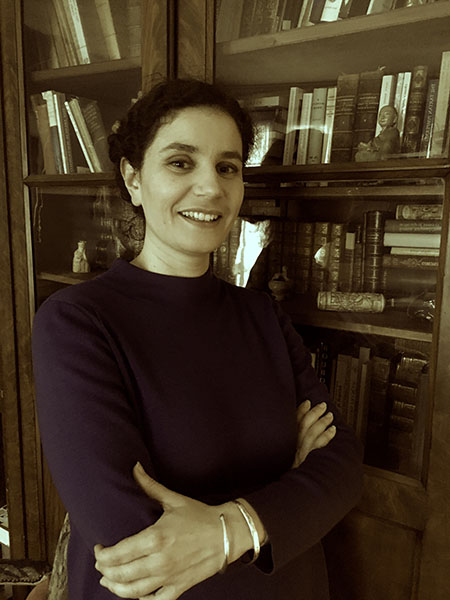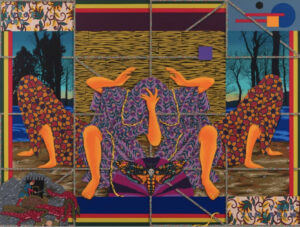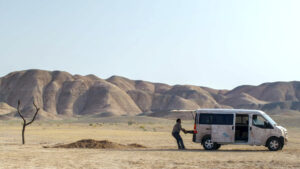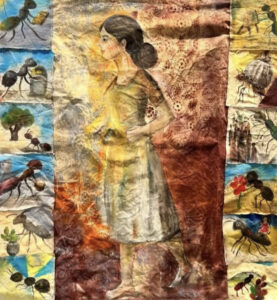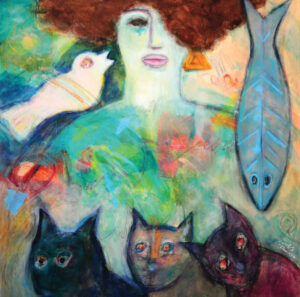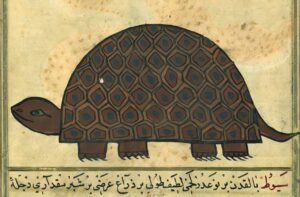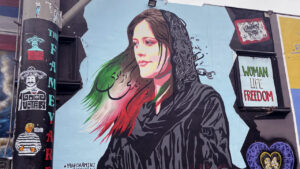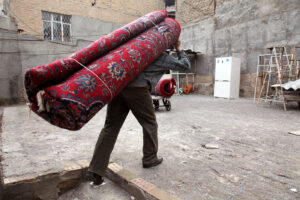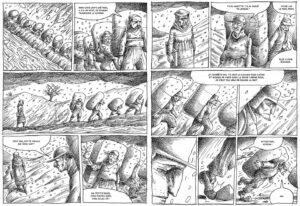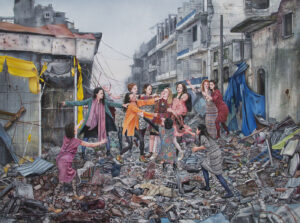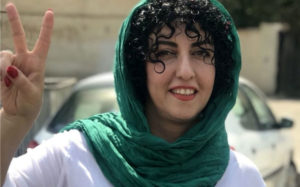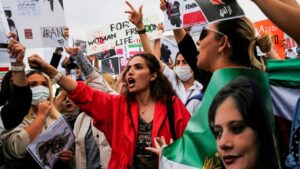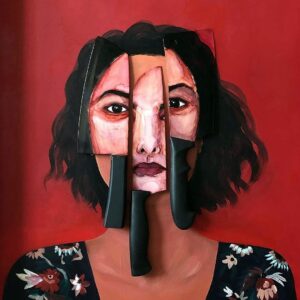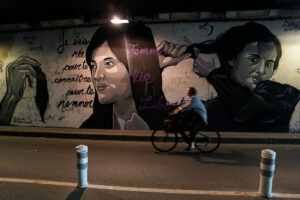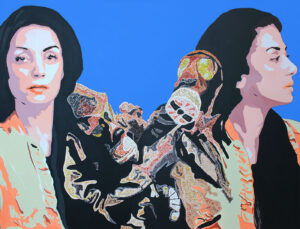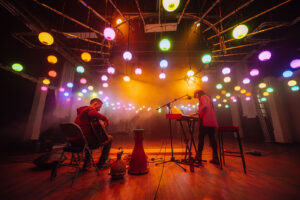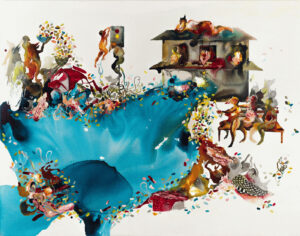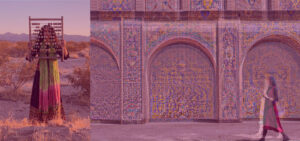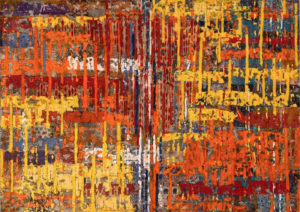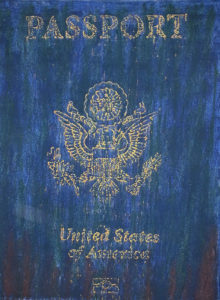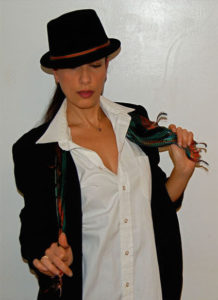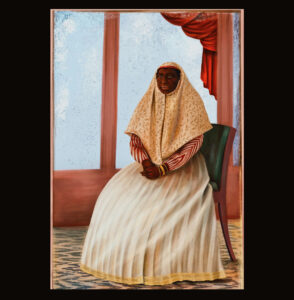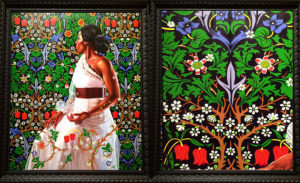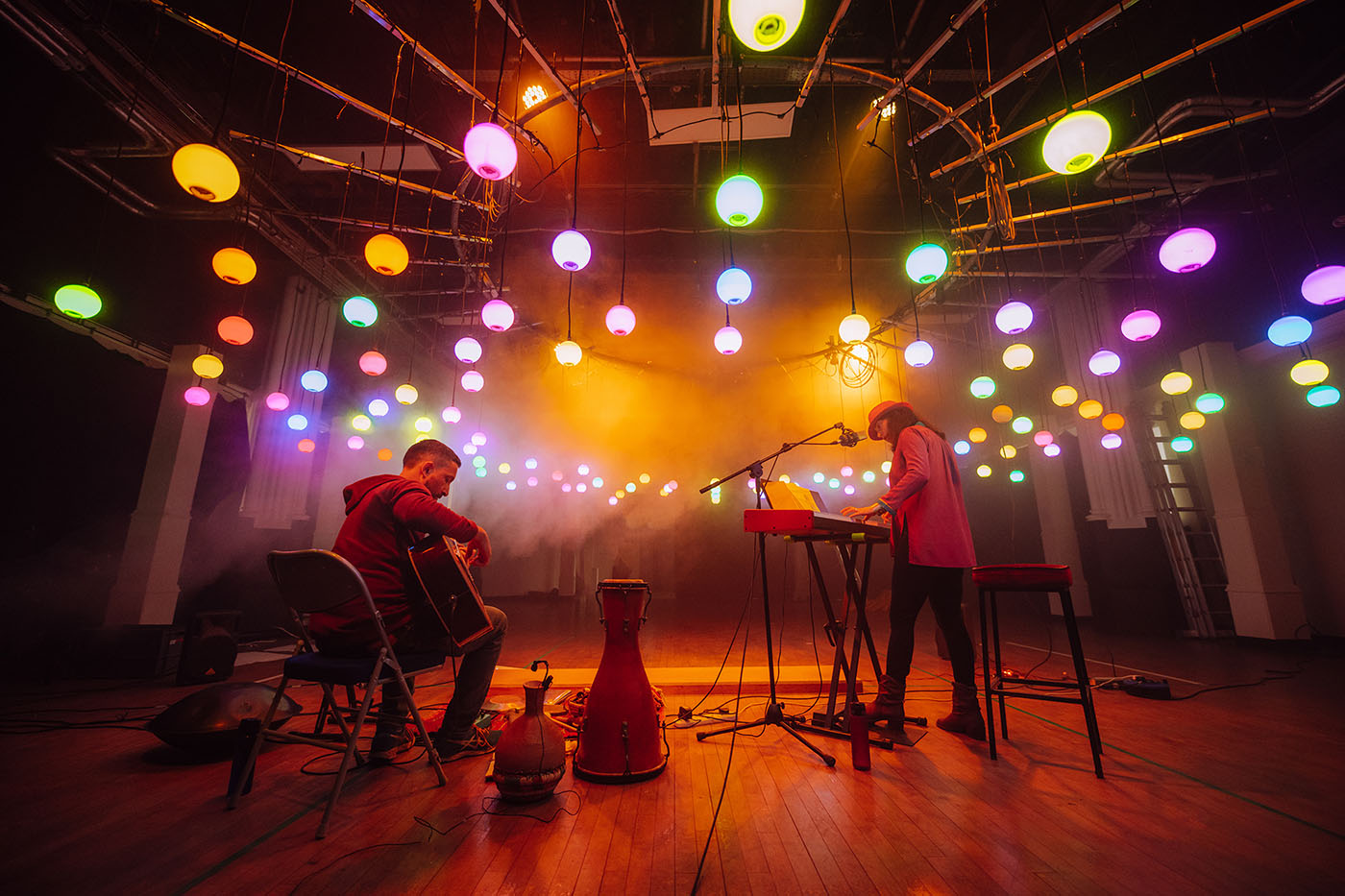
Melissa Chemam
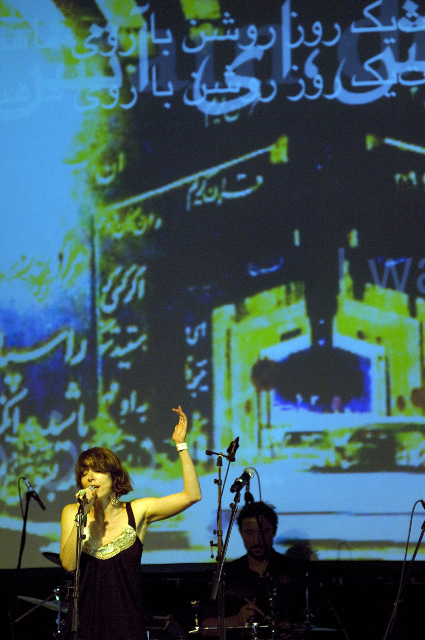
“Since the 1979 Revolution, Iranian female solo vocalists are permitted to perform only for female audiences. Exceptionally, they can perform for male audiences as a part of a chorus,” British Iranian singer Roxana Vilk tells me on a spring day, on a balcony overlooking the Bristol harbor. The fact that in Iran until today, women are not permitted to sing for a mixed audience is galling, yet the country’s patriarchal oppression failed to stop her from making music the center of her life.
Her extraordinary journey, from Iran to Abu Dhabi, England, Scotland, then Bosnia and to England again, has allowed her to create music that travels beyond borders and boundaries. I wanted to meet her for the June edition of this column to explore her incredible journey with and through Iranian music, and with the collective she founded more recently with her husband, Pete Vilk.
The Vilk Collective’s new song, “Ocean Deep,” dropped on June 17. For this new project, they recorded with musicians Yann Seznec, Allan Ferguson, Algy Behrens, and Simon Heath.
Iranian on her mother’s side and British on her father’s, Roxana was born in Tehran, before the Revolution, sharing three flats in the same building block with her family in a transgenerational happy way, where her grandmother and friends were always singing. Farsi is her mother tongue. And the local folk songs profoundly infused her taste in music and still surface, over 40 years later, in the songs and performances she created with her partner, Pete, as part of the Vilk Collective, now based in England.
“Music was never something from outside to be learned, for me,” Roxana continues, “it was the soundtrack of our days, especially when my grandfather drove us from Tehran to the Caspian Sea. He would sing and tell stories all the way. Sometimes, he was so involved with the story that we even got lost!”
Then the Iran-Iraq war broke, and Roxana’s parents had to leave the country. “My granddad gave me a tape with some Iranian music and I never stopped listening to it. For years, none of us, not even my English dad who loved Iran, thought we had left for good.” They first moved to Abu Dhabi and travelled back regularly. “I carried on the music and the Farsi singing in my own way,” she adds. “I listened to the mixed tape constantly too, but it was never nostalgic.”
Her journey in and out of Iran is so exemplary that she directed a film about it for the BBC, titled “Iranian Enough?” which can be seen on her website.
Among the songs that never left her, one had a major role in her journey.“This is a very moving emotional track,” she adds about “Mara Bebus.” “My grandparents and mother used to sing it a lot and often cry when doing so. And I then learnt it and taught it to a choir, when I was a student in Scotland. I think pretty much every Iranian knows this song…”
https://www.youtube.com/watch?v=o650DK1-YoU
Roxana explains that “Mara Bebus” is about a father who finds himself in a prison cell, sentenced to be executed, and is singing to his daughter. The composer was Majid Vafadar (1913–1979), who went into exile after the overthrow of Prime Minister Mohammed Mossadegh in 1953. The lyrics are by Haydar Reqabi, a friend of Vafadar’s, who dictated the lyrics over the phone to the composer. The singer is Hasan Golnaraqi whose father, a prominent merchant, was strongly opposed to his son becoming a professional musician, apparently for religious reasons. The song was recorded without Golnaraqi’s knowledge or consent, and he never recorded another song.
On many occasions in her career, Roxana had the opportunity to sing this song. She even sang “Mara Bebus” with a choir at the Edinburgh Iranian Festival in 2015, in the national museum. “It was really special to teach it to the choir,” she says, “and very moving as after the pop-up concert an Iranian asylum seeker came to me, gave me a huge hug and was crying his eyes out…”
Talking further about Iran’s musical influence, Roxana says that one of the many tracks that she heard from her parents’ collection of pre-revolution Iranian funk, “when things were freer for music shows,” and “such a melting pot of influences,” was “Soul raga” by Abbas Mehrpouya.
She also, like many Iranian kids, grew up listening to Googoosh, “our famous female singer,” she adds.
For almost ten years now, the Vilk Collective has been marrying sounds from Persia, North Africa and the Balkans, where Roxana and Pete met, in Mostar, Bosnia, precisely, just after the war, to organize a festival during a three-week-long ceasefire, at the Pavarotti Music Centre.
Nourished by their profoundly unique experiences, their music now combines folk songs from their youth with elements of jazz and electronica.
Roxana and Pete are musicians and filmmakers; war was a backdrop to both their childhoods, as Roxana fled Iran when the Iran-Iraq war started, and Pete’s parents fled former Czechoslovakia to London when the Russian tanks invaded in 1968.
They also discovered that they were both teenagers in London, listening to eclectic music, from folk songs to funk, jazz and punk, which still influence their creativity. In addition, Roxana studied theatre. She sings in many languages, mostly Farsi and English, but Farsi is especially dear to her heart, and connects her to her homeland.
You can listen to more music from the Vilk Collective, via these links:



